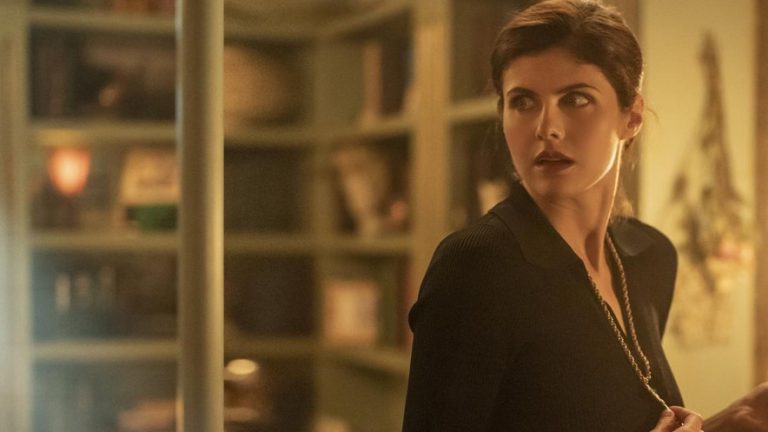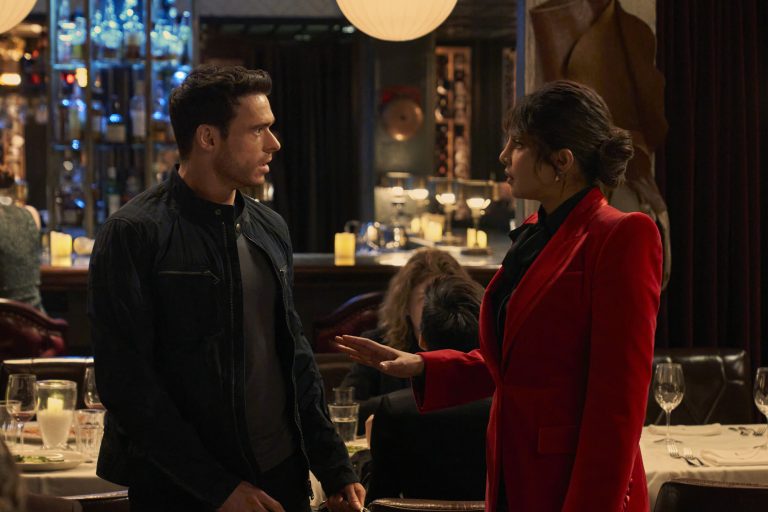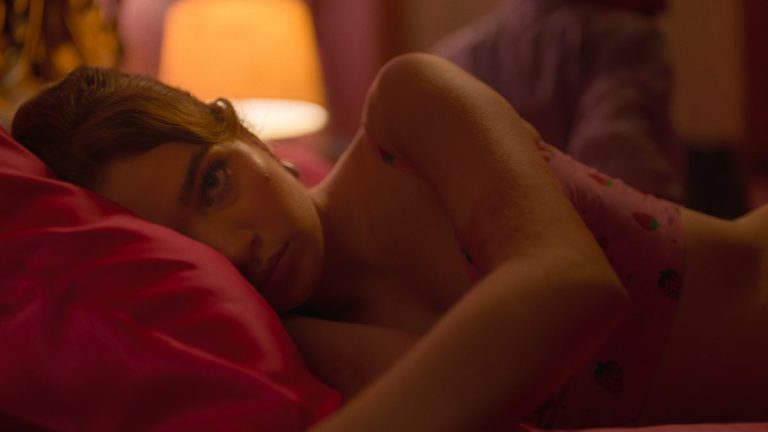Hollywood satirizing itself always brings with it a strangely ouroboric connotation—an excruciating, try-hard attempt to make themselves cooler by lampooning themselves in front of their audience. To a certain extent, the lampooning could work if the media exploring said sentiment has a discerning point. The Seth Rogen and Evan Goldberg-created show The Studio (Season 1) seems to be vacillating between two entirely conflicting points.
As the show begins, we are introduced to Matt Remmick (Bryan Cranston), who is appointed the head of flailing Continental Studios by its new owner Griffin Mill (Bryan Cranston), who also gives him his first mission statement—to revive the IP of Kool-Aid by producing a movie akin to the success of “Barbie,” which would put Continental Studios on the map. But that is a hard pivot from what the cinephilic perspective of Remnick wants Continental Studios to be making—serious, art-house movies, which Mill and other Hollywood big shots like Remnick’s friend Sal Saperstein (Ike Barinholtz) pooh-pooh highly against. It’s the journey of Remmick trying desperately to keep the studio from falling apart as well as massage his own insecurities and his team’s that produces a chaotic environment.
If the Rogen and Goldberg-directed show is meant to be a microcosm of Hollywood behind the scenes while heavily lampooning the studio system, then its timing feels incredibly prescient. At a time when film studios are being bought up by tech companies, studios are aggressively poaching independent voices and essentially asking them to remake their own successful ventures. This contrast is both hilarious and deeply sobering.
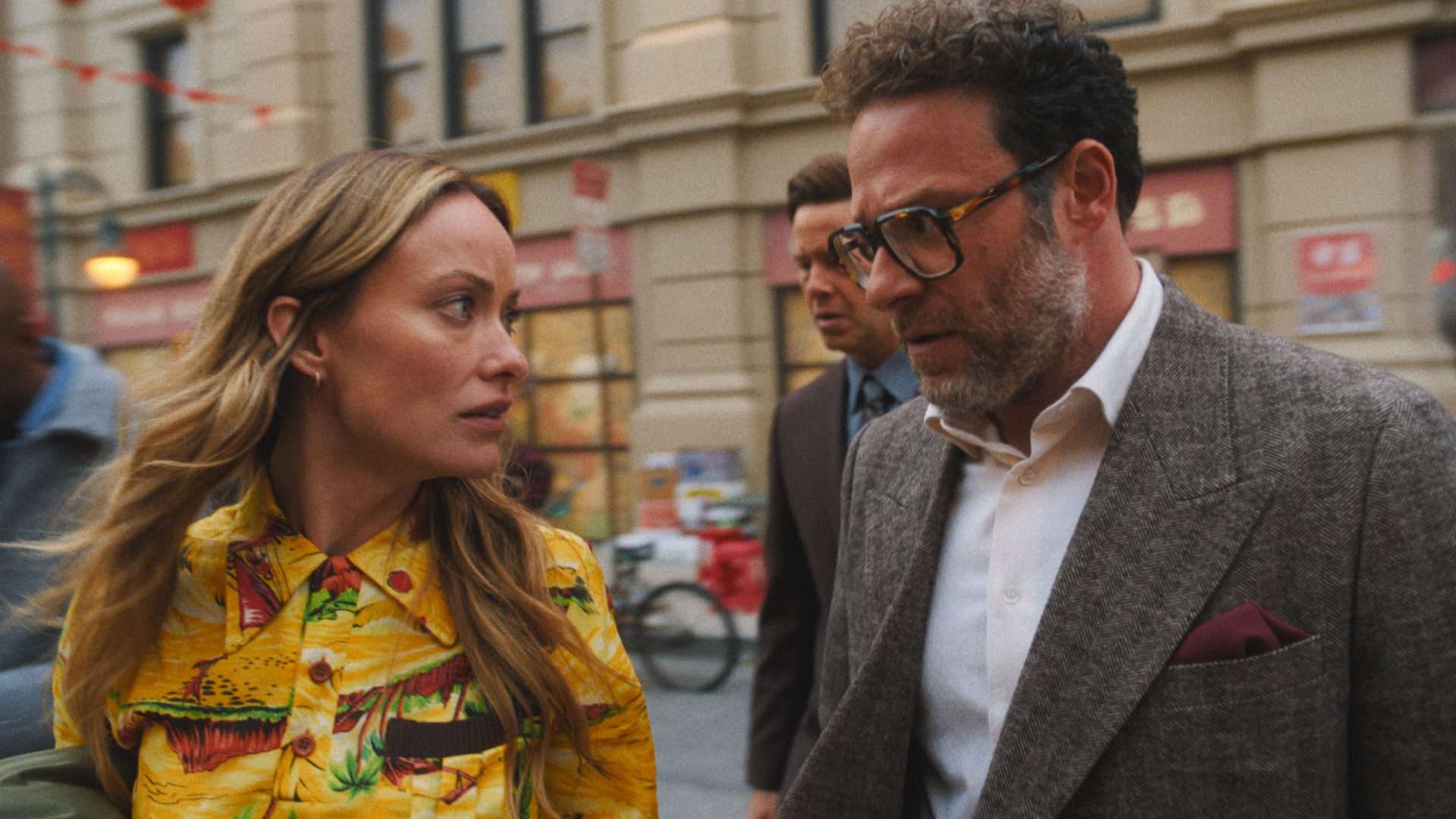
The perspective of a Martin Scorsese directorial venture being shafted for a Kool-Aid movie because a studio head actually wanted to have his cake and eat it too—create an artistically important film but also a ready-made IP branding—gives the impression of a series essentially informing the obvious criticism being presented by cinephiles to big studios.
By putting a character like Matt Remnick as the head of a studio who is also a cinephile and a lover of “Soy Cuba” and “Touch of Evil” to the extent that he is doing set visits to check on a “oner” in an auteur film and producing further chaos in the process, the show inadvertently wants to highlight the dissociation and tough balancing act essential to running a studio. The problem this perspective brings forth is the essaying of said role by Rogen, a lover of film himself. His role essentially tries to humanize this gremlin of a figure, but because the situations he finds himself involved in are so prescient and recall real-life events, this characterization comes in sharp contrast to perhaps portrayals of actual studio heads.
Where the show doesn’t falter is when it is hyper-specific on moments involved within the film process, like the process of giving notes to auteur filmmakers that could actually help with the filmmaking, and the massaging of egos that requires. The best episode and easily the most complicated of the lot, is the episode dealing with the casting of the Kool-Aid movie, and the hole these executives dig in for themselves when they start worrying about representation and trying not to offend any sect without actually looking at the overall picture.
The comedy, of course, stems from the fact that the movie being discussed so heavily is the “Kool-Aid” movie, and thus one can argue the series is essentially showing how its inherent vapidity allows for so many cooks to worry about everything else other than the film itself. But the show can’t resist giving a jab at the studio using AI in animation and their reactions at being called out (rightly so) by fans and union groups.
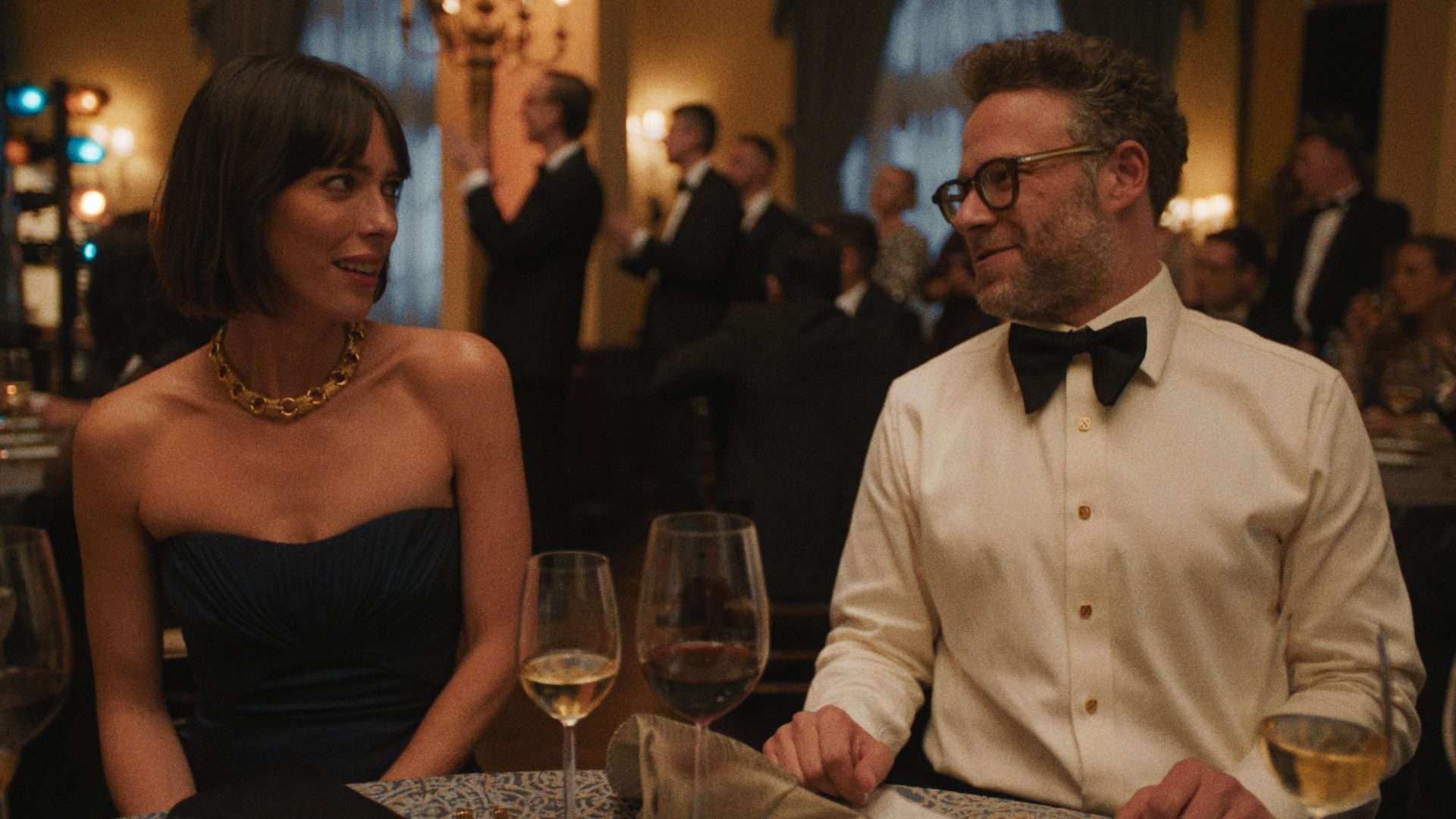
There are episodes solely dedicated to characters, and these episodes work when they become almost slapstick in nature or resort solely to ego battles. Episode 5, titled “The War,” works when it is focusing on the battle of wits between Quinn (Chase Sui Wonders) and Sal. What I also appreciated is the show bringing in filmmakers like Owen Kline (Funny Pages), Nicholas Stoller (Captain Underpants), or Parker Finn (Smile), providing them the avenue to play exaggerated versions of themselves, which are not exactly the farthest from the truth, but also ensure eyeballs towards their movies. Conversely, when the show tries to delve into the personal lives of these characters, it feels mostly disinterested, unless the episode is specifically about an event where a character has to interact beyond the confines of the studio.
As a satire, Rogen and Goldberg clearly have love and disdain for the business in equal measure, but there is always a sense of stubbornly remaining shallow and superficial in terms of character progression. The show, however, gets almost all the details right—be it the ouroboric nature of awards functions as essentially a massive orgy of well-wishes, or the chaos and importance of Cinemacon, or studio executives trying desperately to be liked by both their underlings and the talent involved. Thus the performances are universally solid, able to regulate the pitch and over-the-top nature of the comedy so that it doesn’t become unbearable to watch. Kathryn Hahn’s portrayal of a marketing executive pushes that tone, but there is a certain kernel of truth to almost all the portrayals that cannot be denied, and perhaps that is why the parody is largely successful.
If anything pushes “The Studio” beyond just jabs at the Hollywood system, it’s the filmmaking style, with Rogen and Goldberg ensuring that the show is always shot like a one-take, to produce a sense of chaos that always exists in the life of these characters and the studio system itself. It is raucously funny in spurts, able to capture the volatility and vitality within that town through its filmmaking with sublime cinematography by Adam Newport-Berra and tight editing by Eric Kissack. The last two episodes are masterclasses in how to execute a chain of comedic bits as well as produce jokes at the expense of the filmmaking business itself, but if one expects “The Studio” to be actually insightful in its entirety, they might come out disappointed.




